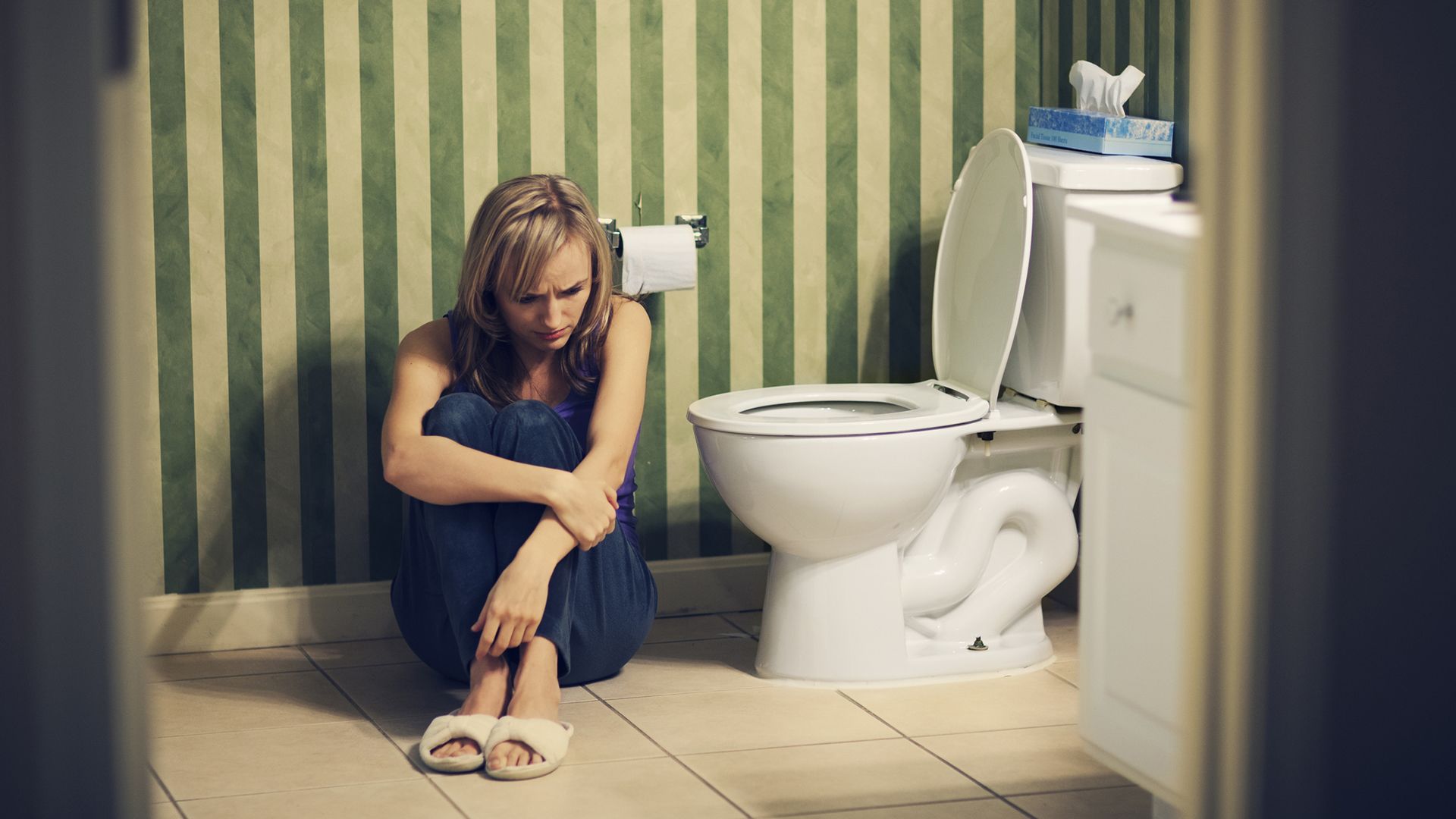Sometimes, gas is the result of your menstrual cycle or your last meal. Other times, gas plus pain and changes in your bowel movements can signal a condition, like irritable bowel syndrome (IBS).
IBS is a gastrointestinal disorder characterized by abdominal pain, diarrhea, constipation or a combination of the three. Often, it also presents with gas. Research suggests about 12 percent of Americans have the condition. Many don’t realize what they're experiencing could be IBS, so a large number are never diagnosed, and even fewer—about 15 percent—seek medical treatment.
Here's how to tell if your gas may signal IBS, and what you should do about the discomfort.
Common signs of IBS
IBS has no clear cause. It's defined as pain in the abdomen plus a change in bowel habits—diarrhea, constipation or both—for three months or more. You needn't wait for that three-month mark to see your doctor, though. Prompt diagnosis can lead to relief sooner, rather than later.
Some other common warning signs of IBS include:
- Bloating
- Cramps
- Mucus in your stool
- Feeling like you haven't finished a bowel movement
Regarding gas—having a lot of it is another indication of IBS. It's normal to pass gas anywhere from 13 to 21 times a day, but if gas is painful or causes uncomfortable bloating, speak with your doctor about ways to get relief. Change in frequency or presence of other symptoms are also reasons to see your healthcare provider.
Diagnosing and treating IBS
The first step in finding a solution to IBS is making an appointment to see a healthcare provider. During your visit, your doctor will likely ask for a recap of your symptoms and review your family and medical history.
Although there is no specific test to identify IBS, in most cases, your doctor will perform a physical exam and may test blood and stool samples. Your visit may also include other tests to rule out conditions with similar symptoms. Such exams might include a colonoscopy, which uses a scope and camera to detect abnormalities in the large intestine.
Following an IBS diagnosis, a number of treatment options may be recommended. Diet and lifestyle changes, like eating more fiber and getting better sleep, can help quell symptoms for some. Medications to manage diarrhea, constipation and abdominal pain may also be prescribed.
Stress is a lesser-known but nonetheless important trigger of IBS, so getting everyday tension under control can help ease symptoms, as well. Stress management techniques include exercise, meditation and even a good laugh.
Identifying other conditions
IBS isn't the only condition associated with intestinal gas, though. In fact, a number of ailments, including food sensitivities, gastroesophageal reflux disease (GERD), diverticulitis and inflammatory bowel disease (IBD) can present with gas. Each of these conditions warrant a prompt trip to your doctor's office, so spotting symptoms—in addition to gas—is important.
Signs of other serious gastrointestinal conditions include:
- Abdominal pain or tenderness
- Feeling like you haven't finished a bowel movement
- Nausea and vomiting
- Fever
- Constipation
- Bloating
- Diarrhea
- Bloody stool
- Fatigue
- Fullness quickly after eating
Don’t ignore these troubling symptoms. Without exception, bloody stool should be evaluated by a physician. If other symptoms persist beyond a few days, arise suddenly, become frequent or cause you concern, make an appointment to speak with your doctor, keeping a detailed list of your symptoms in the meantime.
Living with routine gas
Sometimes, gas is just gas, too. It can be caused by high-fiber foods, certain antibiotics or a host of other possibilities. Often, the best way to relieve it is to treat the underlying cause of the problem, like identifying and avoiding foods you know make your gut unhappy. Chewing your food more slowly or taking a leisurely walk after each meal could help, as well.
Routine gas will likely remedy itself, but you shouldn't ignore telltale signs of a problem, like IBS. Get in tune with your tummy and seek prompt treatment for any symptoms that don’t subside on their own.





